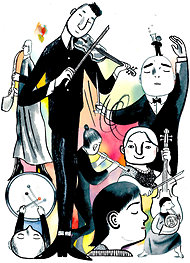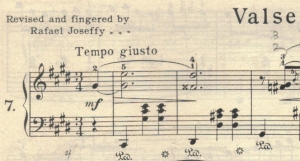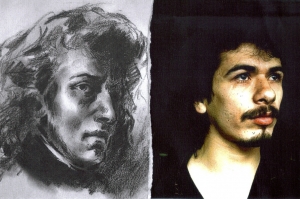- Moonlight my ass!
- The HUMBLER
- Who’s the top-selling pianist in history?
- Fly Away :(
- The Mozarts of Hair Metal
- How To Compose Today
- What time is it?
- Twins separated at birth
- To hear the world in a single note and heaven in a triad
- RIP Elliott Carter, Maestro of Thorny Complexity
- Monster Mashup
- May the best man wi… Oh, damn!
- Music for driving into trees: Sweet Wine
- Music for driving into trees
- My Favorite Things
- Mammas Please Let Your Babies Grow Up to Play Cowbells
- Claret for Clara
- Last of the Bohemians
- Guy walks into a bar
- How to break a heart with one chord
- What are oboes good for?
- Doppelganger
- Enigma

To hear the world in a single note and heaven in a triad
November 19, 2012
Doesn’t it blow you away when someone sneaks into your brain and snatches your thoughts? That’s what Tommasini did in his NY Times column yesterday.
A single chord can knock you on your ass. (How to break a heart with one chord.) Even a single note. (That growling bent E string in Jimi’s "House Burning Down" solo.)
I’d love to know — what notes (or rests!) send you flying?
Categories: Commentary, Composers, Chopin, Mahler

Claret for Clara
September 13, 2012
How delightful is it that Google is celebrating trailblazer Clara Schumann today! If she were alive today — at a perky 193 — how her heart would light up to hear all the adventurous women composers and performers of our generation.
In her day, Chopin and Liszt got all the press, but Clara was a renowned lioness at the keys.
Not only was she a fine composer in her own right; she was also muse to two Giants of Romanticism: husband Robert and lifetime love Brahms, both of who she supported artistically and financially. (Make of this what you will, but disconsolate Brahms shuffled off his mortal coil less than a year after Clara passed away.)
So… decant some Claret and raise a glass to Clara.
Categories: Composers, Brahms, Chopin, Clara Schumann, Robert Schumann

It's that second chord
How to break a heart with one chord
November 16, 2010
Chopin’s Waltz in c# minor, Opus 64, #2
Chopin was a master of extracting the profound sorrows of the heart out a single chord. In this waltz, it's that second chord.
On one hand, technically, it's a chromatic downward slipslide — it had to be downward, right? — of that minor sixth interval underpinned by — OMG! — a modulation! and we're only in the first full measure! Where’s he taking us? Well (still technically), to the seventh-saturated dominant of the dominant; not a Mozartian drive down a country lane, but a careening off the road into a sunless ravine, all with one chord, that second chord.
On the other hand, all theory aside... it's heartbreak.

Twins separated at birth?
Doppelganger
March 01, 2010
It's Doppelganger Week, when folks swaps faces for faces. Got me wondering: How about Doppelganger music?
Try this out: Play Chopin’s G Minor Ballade. Then before you exhale, put on Santana’s Europa.
For me, these two pieces are spiritual twins. I’ll try to make the case.
● They take you on the same ride. Slow and soulful at the start, the water breaks, then breathless crazed fury at the end. In a double-blind placebo-based randomized trial of listeners, cardiologists have measured the difference in heart rate between start and finish. In both instances, an increase on 45 beats per minute.
● The ride starts the same. An upward arching four-note minor-key phrase, a plea to the heavens, coming to rest on sustained notes that serve only as question marks hanging in the air.
● The ride continues along the same line. That initial phrase is sequenced a few times, adding to the pain and tension. And so it goes till near the end, when…
● All hell breaks out. The lions’ cages unlocked a feeding time. Skiing off a cliff. Freefall frenzy. Unfettered exhuberance. Full-tilt freakout.
But these parallels don’t really make the case. It’s more than the expressive arc. More than the heart-piercing harmonic and melodic language.
For me, these two pieces were drawn from the emotional well, inspired by the same muse, and tell the same story, whatever that might be. So all this half-diminished case-making is a musicologic fool’s game. Why are the Ballade and Europa dopplegangers? Because I feel it.
Next time: First movement of Beethoven’s Emperor Concerto and Hendrix’s House Burning Down.
So… What are your musical dopplegangers?
Oh… and happy 200th birthday, Piano Man.
Categories: Composers, Chopin, Musicians, Santana, Unified theory of music